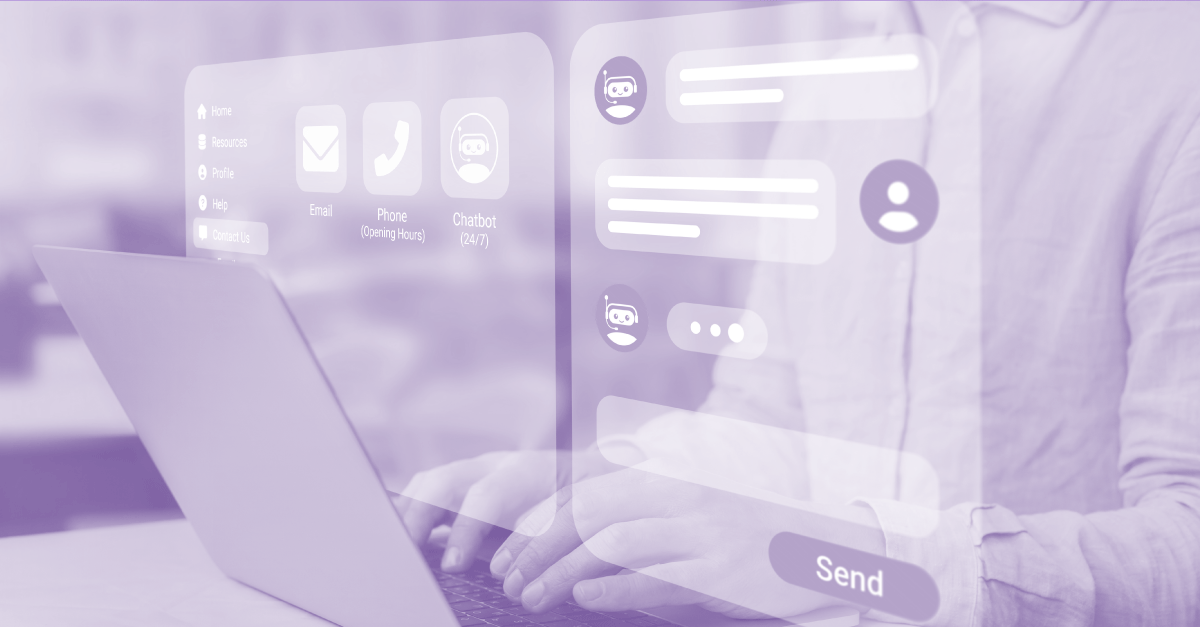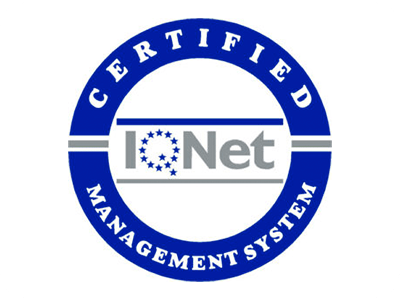6 Common Use Cases of AI in Marketing
December 16th 2022

In recent years, new and innovative technology has become increasingly important in accomplishing marketing activities. Businesses are increasingly turning to AI to improve customer experience, target advertising, personalize content, and make data-driven decisions. Check out 6 common use cases of AI in marketing.
AI plays a vital role in marketing. As customers become more savvy, knowledgeable, and demanding about what they way and how they want it, marketing teams need to implement cutting-edge ways to keep up with the times. They need to focus on delivering a more customer-centric model that improves relationships and puts personalized experiences at the forefront of the customer journey.
By using machine learning, deep learning, natural language processing, and more, AI is proving to be a critical tool in developing high-performing marketing strategies. In fact, in 2021 the value of AI in marketing reached 15.84 billion US dollars. This is projected to reach 107.5 billion by 2028 (Statista Research). Businesses can seize the opportunity to connect to consumers in a more seamless and rapid way. In turn, allowing them to adapt strategies, create data-driven tailored services and products, measure performance, and provide real-time engagement. These key insights help to build robust marketing strategies that focus on what customers truly need.
Keep reading if you want to know just how you could be using AI to improve your marketing strategies and decision-making.
1. Marketing Automation
Marketing automation allows marketers to manage several aspects of their marketing programs at once. For example, an email marketing campaign can be set up to send a series of emails to a list of subscribers automatically after they sign up, or you can set up an automated email series that responds to a specific customer action. For instance, a certain product, clicking a specific link, making a certain purchase, etc.)
There are many other uses for marketing automation systems. In general, marketers can use them to schedule content, send emails, and manage their lead generation and lead nurturing campaigns. A marketing automation system gives marketers the ability to save time and increase their productivity by removing repetitive tasks from their to-do lists.
2. Content Moderation
Sifting through social media platforms can be a time-consuming task for businesses. However, AI can quickly scan through all data to moderate content and analyze it for certain characteristics or attributes. For example, AI can be trained to identify certain keywords or phrases that are commonly associated with spam or inappropriate content, and flag or remove that content automatically.
Additionally, AI-powered solutions can be used to detect and remove offensive or harmful language from marketing content. This ensures a more positive and welcoming environment for customers. Overall, the use of AI in moderating marketing content can help ensure that only appropriate and relevant content is shared with customers.
3. Data Analysis
Artificial intelligence software can efficiently analyze large amounts of data, which is useful for marketers who are trying to gain insights about their customers. Data is fundamental if businesses want to carry out an effective marketing strategy. AI can work with expansive volumes of data to find patterns and generate insights that humans might have missed. Once the software gathered this information, it can create visual representations, such as graphs and charts.
Because AI can process more data faster and more efficiently than humans, it can help you gain a valuable understanding of your customers, products, and business at large. In some cases, it can even uncover insights that you wouldn’t have thought to look for in the first place.
4. Chatbots
You’ve probably used a virtual customer service representative: an automated chatbot that you can communicate with via an online interface. This kind of AI is most often used to respond to basic customer service questions. However, these chatbots are starting to take on more complex tasks, including marketing-related activities to make sound marketing decisions.
For example, a marketing-focused chatbot could be programmed to send out special offers to certain customers at certain times. It could also be programmed to answer basic questions from customers who are curious about your products and/or services such as “Where can I find your product?”, “When will it be delivered?”, and “Who are your company’s executives?”.
5. Measurement
AI can be used to help marketers calculate how much an investment will pay off in the form of an ROI. For example, imagine that your company has created a new product and needs to decide whether to invest in marketing the product or not. AI can measure demand for the product, forecast sales, and determine the level of investment required to bring the product to the market successfully.
AI can be used to track the effectiveness of your marketing efforts and calculate their ROI. It can help you determine which marketing channels are performing best, where you should focus your marketing efforts, and how much you should spend on each marketing channel.
6. Social Media Listening & Brand Awareness
AI can be used for social listening by analyzing social media posts, comments, and other online content to identify patterns and trends. This helps businesses understand how customers are interacting with their brand, what they are saying about it, and how they are feeling about it. For example, a business can use AI to monitor social media for mentions of their brand and track the sentiment of those mentions to gauge how positively or negatively customers are reacting to their products or services.
By monitoring performance, businesses can use the information gathered to create social media strategies, optimize messaging, address complaints, and monitor performance. Additionally, AI can be used to discover potential customers or influencers and target them with personalized content or offers.
Conclusion
Artificial intelligence is continuing to evolve and improve, which means that we’re only beginning to scratch the surface of how it will transform the way we do business. With advancements in machine learning, natural language processing, and deep neural networks, the possibilities for how AI can transform marketing are truly endless. The future of AI in marketing is bright. As these systems become more sophisticated, their impact will grow, and marketers will have more tools at their disposal than ever before.
Explore the AI-powered marketing tools we can offer your business.
Ready to see what we can do for you?
In the right hands, artificial intelligence can take human performance to a hitherto unimaginable level. Are you ready for evolution?




